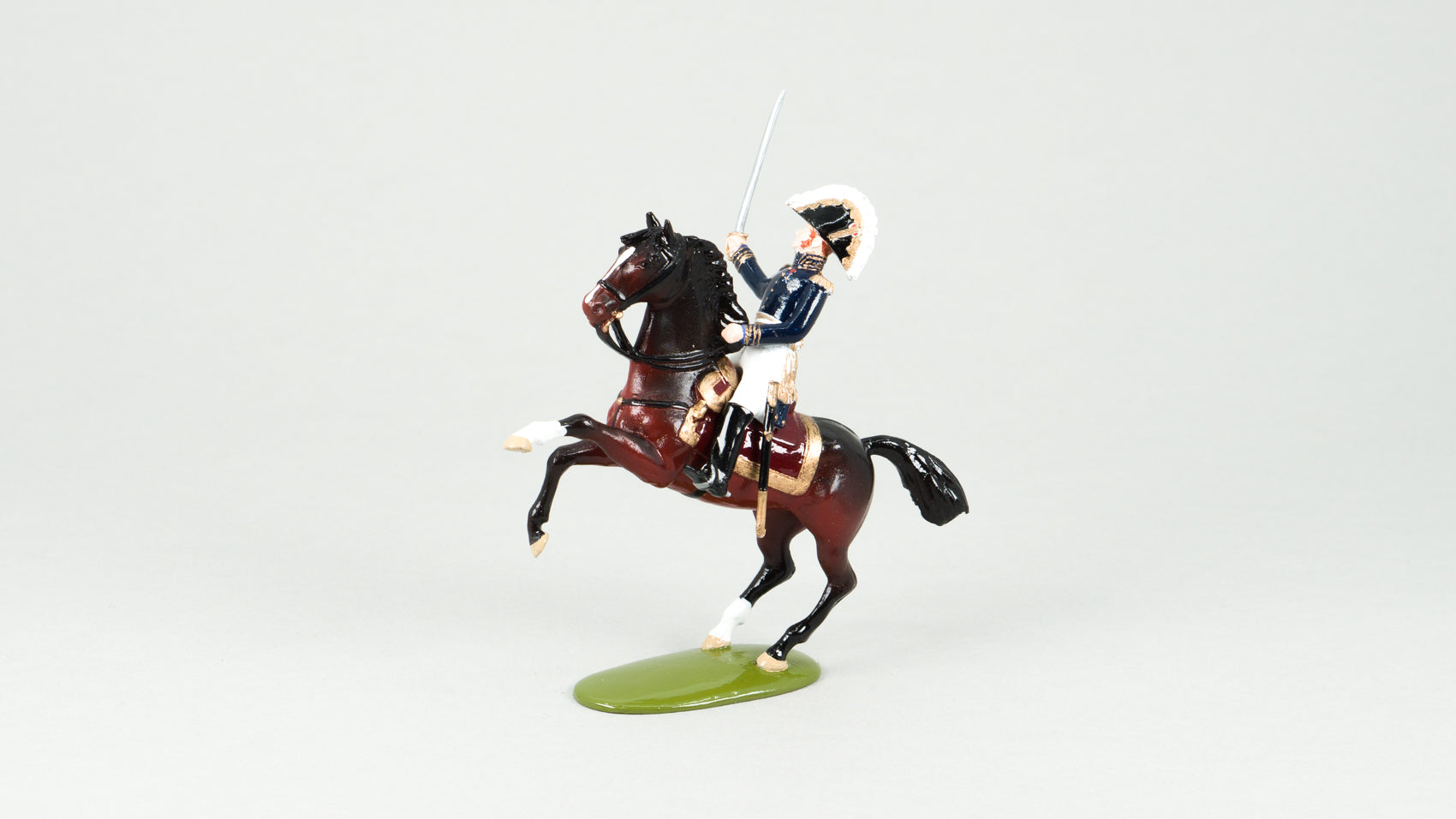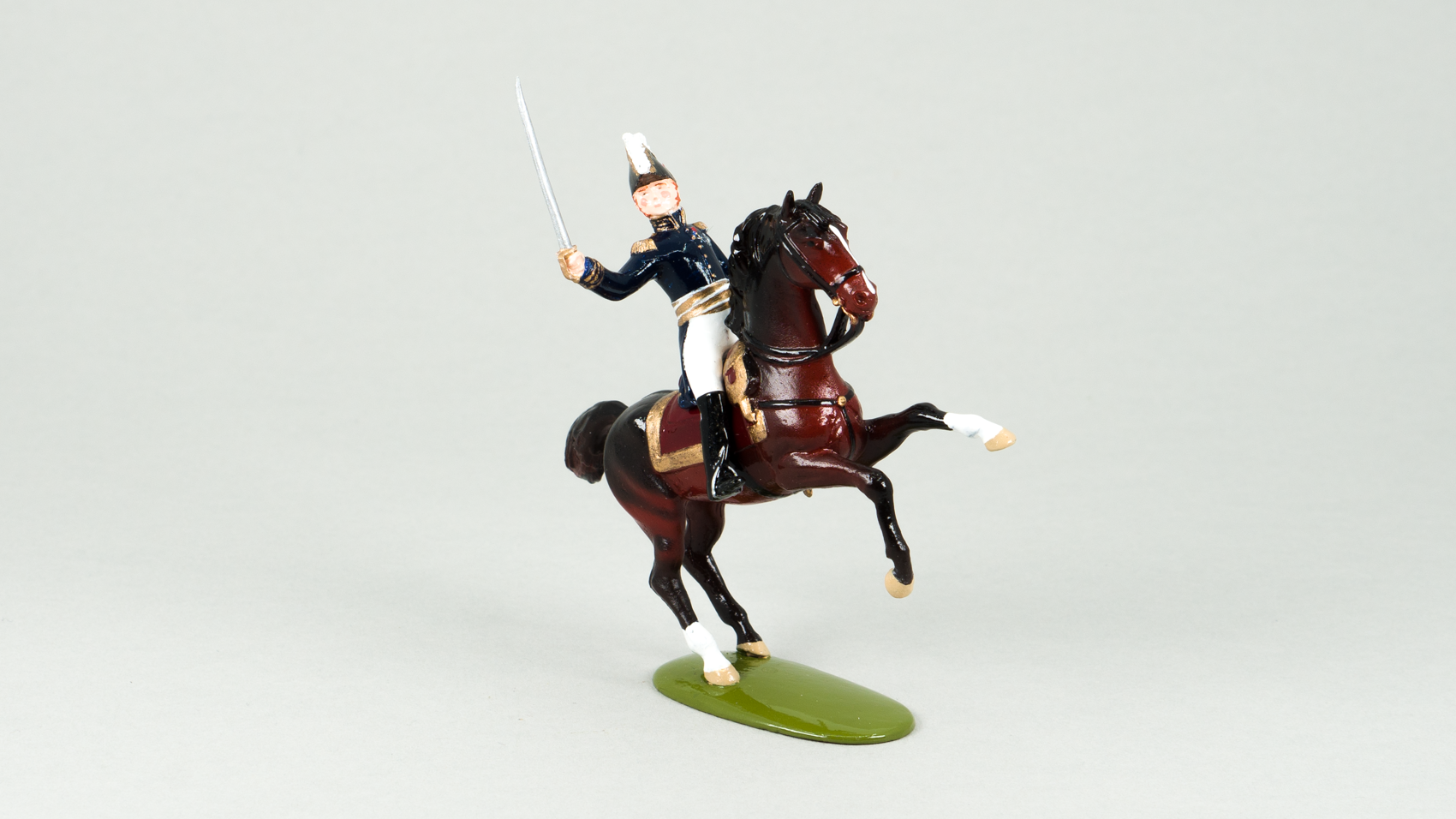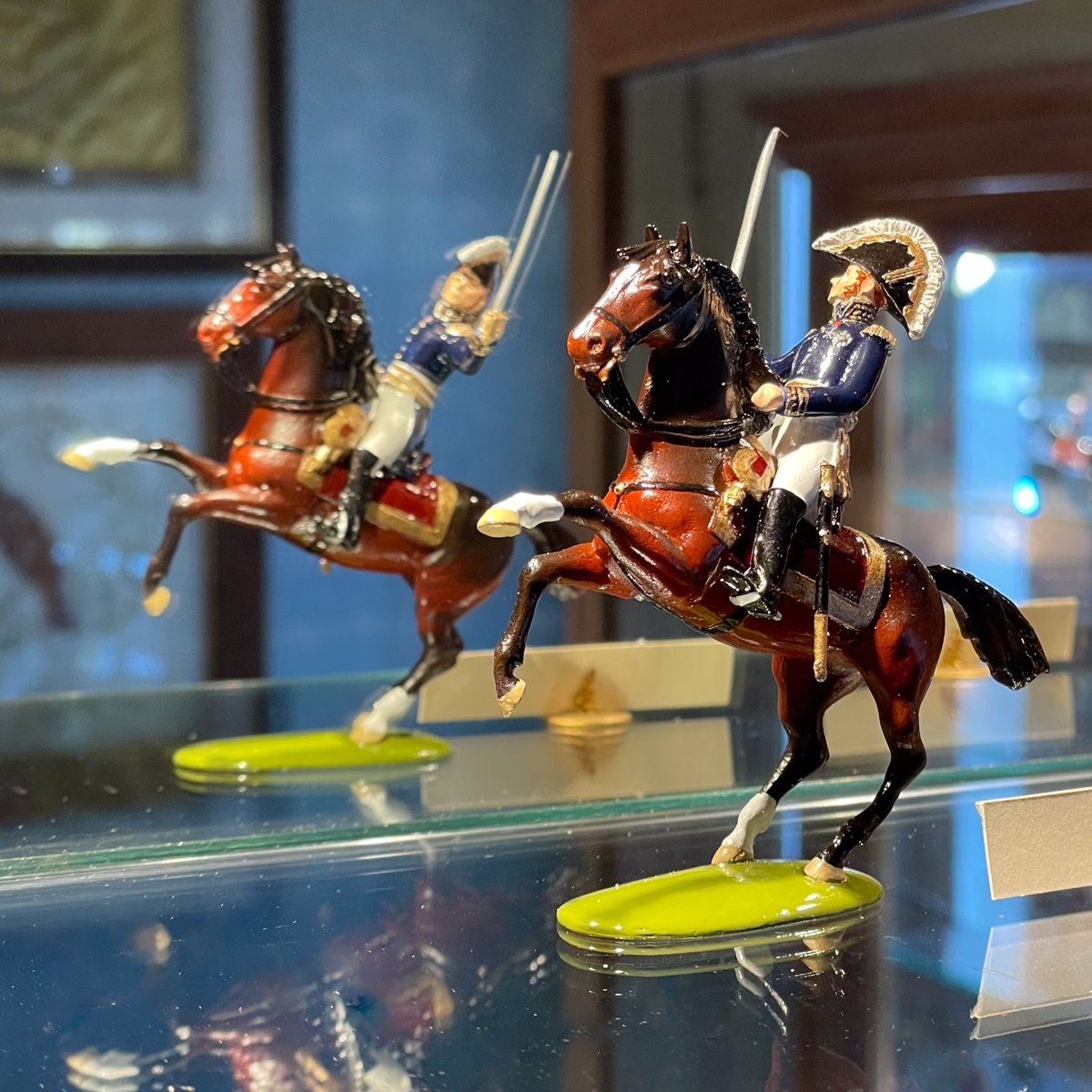


160 Marshal Ney
From humble beginnings as the son of a cooper, Ney joined the Hussars and seized the opportunity presented by the French Revolution to quickly advance himself in active service. He developed a reputation for remarkable courage under fire, and despite a reluctance for promotion, was by 1800 a General. His exploits at Mannheim earned his reputation throughout the armies of France as the "Indefatigable".
With the creation of the Empire under Napoleon, Ney received his Marshal's baton. More military success was tempered by his impetuousness which verged on insubordination and saw him frequently disgraced. During the war against Prussia, Napoleon changed his sobriquet to the "bravest of the brave". Despite his courage and dedication to his men, his difficulties in working with the General Staff in Spain caused a recall in 1811.
His redemption came in the Russian campaign. Earning the title "Prince of Moscow", he commanded the rearguard retreat in 1812, performing heroic actions, mobilising demoralised troops, and escaping against often overwhelmingly superior numbers. He was the last man to cross the Neimen river into Germany.
Ney was part of the army's refusal to march against the allies in Paris in 1814, and encouraged Napoleon to abdicate to avoid civil war. He pledged allegiance to the Bourbon regime.
Napoleon's return in 1815 saw Ney rejoin him in response to popular sentiment. He was put in command of the left wing and tasked with taking Quatre Bras. He made a series of tactical errors, failing to take the position when it was lightly defended, and later charging the reserve cavalry too early.
Ney returned to Paris to witness the second abdication, was arrested and executed for treason on December 7 1815.
Ney is shown here with his mameluke sabre (a gift from Napoleon) on a rearing dark bay horse.
Choose options






